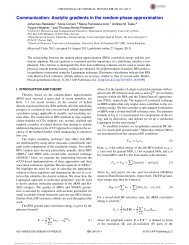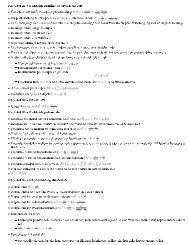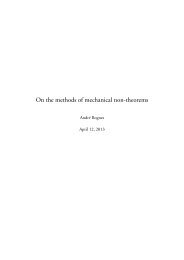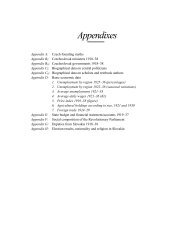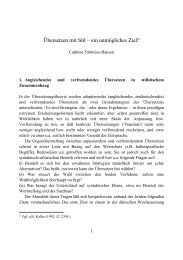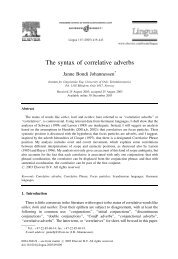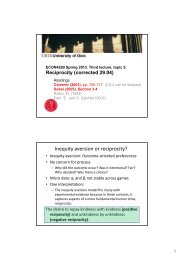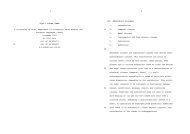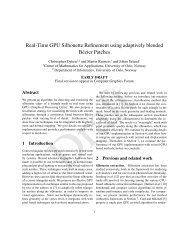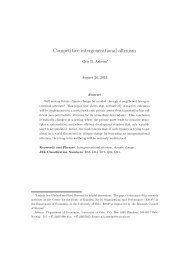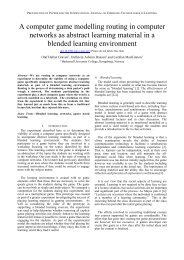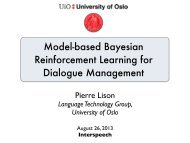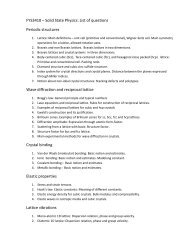- Page 1 and 2: NPNF1-02. St. Augustin's City of Go
- Page 3 and 4: NPNF1-02. St. Augustin's City of Go
- Page 5 and 6: NPNF1-02. St. Augustin's City of Go
- Page 7 and 8: NPNF1-02. St. Augustin's City of Go
- Page 9 and 10: NPNF1-02. St. Augustin's City of Go
- Page 11 and 12: NPNF1-02. St. Augustin's City of Go
- Page 13 and 14: NPNF1-02. St. Augustin's City of Go
- Page 15 and 16: NPNF1-02. St. Augustin's City of Go
- Page 17 and 18: NPNF1-02. St. Augustin's City of Go
- Page 19 and 20: NPNF1-02. St. Augustin's City of Go
- Page 21 and 22: NPNF1-02. St. Augustin's City of Go
- Page 23 and 24: NPNF1-02. St. Augustin's City of Go
- Page 25 and 26: NPNF1-02. St. Augustin's City of Go
- Page 27 and 28: NPNF1-02. St. Augustin's City of Go
- Page 29 and 30: NPNF1-02. St. Augustin's City of Go
- Page 31 and 32: NPNF1-02. St. Augustin's City of Go
- Page 33 and 34: NPNF1-02. St. Augustin's City of Go
- Page 35 and 36: NPNF1-02. St. Augustin's City of Go
- Page 37 and 38: NPNF1-02. St. Augustin's City of Go
- Page 39 and 40: NPNF1-02. St. Augustin's City of Go
- Page 41 and 42: NPNF1-02. St. Augustin's City of Go
- Page 43 and 44: NPNF1-02. St. Augustin's City of Go
- Page 45 and 46: NPNF1-02. St. Augustin's City of Go
- Page 47 and 48: NPNF (V1-02) i A SELECT LIBRARY OF
- Page 49: NPNF (V1-02) v vi Editor’s Prefac
- Page 53 and 54: NPNF (V1-02) xii last four, of thei
- Page 55 and 56: NPNF (V1-02) xiii kingdoms of this
- Page 57 and 58: NPNF (V1-02) There is an earnest gr
- Page 59 and 60: NPNF (V1-02) The glorious city of G
- Page 61 and 62: NPNF (V1-02) 3 There are histories
- Page 63 and 64: NPNF (V1-02) 4 mad and blasphemous
- Page 65 and 66: NPNF (V1-02) 5 means have been omit
- Page 67 and 68: NPNF (V1-02) 7 consider those very
- Page 69 and 70: NPNF (V1-02) 8 love of money is the
- Page 71 and 72: NPNF (V1-02) have alike ceased to b
- Page 73 and 74: NPNF (V1-02) and is said to have pl
- Page 75 and 76: NPNF (V1-02) But if they say that M
- Page 77 and 78: NPNF (V1-02) 13 For the sanctity of
- Page 79 and 80: NPNF (V1-02) 15 affront that anothe
- Page 81 and 82: NPNF (V1-02) 16 which saw that the
- Page 83 and 84: NPNF (V1-02) to prevent so disastro
- Page 85 and 86: NPNF (V1-02) 19 Chapter 28.—By Wh
- Page 87 and 88: NPNF (V1-02) 20 and to lead an aban
- Page 89 and 90: NPNF (V1-02) more influence with yo
- Page 91 and 92: NPNF (V1-02) 24 If the feeble mind
- Page 93 and 94: NPNF (V1-02) 25 speak of to fall on
- Page 95 and 96: NPNF (V1-02) This is the reason why
- Page 97 and 98: NPNF (V1-02) 28 written and promulg
- Page 99 and 100: NPNF (V1-02) 29 presumed to protect
- Page 101 and 102:
NPNF (V1-02) tribe, far less the se
- Page 103 and 104:
NPNF (V1-02) 32 Jove; and in giving
- Page 105 and 106:
NPNF (V1-02) 33 kings to consuls, t
- Page 107 and 108:
NPNF (V1-02) Chapter 20.—Of the K
- Page 109 and 110:
NPNF (V1-02) 36 or, as the Greeks s
- Page 111 and 112:
NPNF (V1-02) lost its brilliant hue
- Page 113 and 114:
NPNF (V1-02) 39 him from stirring u
- Page 115 and 116:
NPNF (V1-02) Seeing that this is so
- Page 117 and 118:
NPNF (V1-02) 42 thraldom of these u
- Page 119 and 120:
NPNF (V1-02) 44 Of moral and spirit
- Page 121 and 122:
NPNF (V1-02) cases have the authori
- Page 123 and 124:
NPNF (V1-02) 46 But if so, I ask th
- Page 125 and 126:
NPNF (V1-02) his own!” 133 Was it
- Page 127 and 128:
NPNF (V1-02) 49 Who can number the
- Page 129 and 130:
NPNF (V1-02) 50 the progeny of Venu
- Page 131 and 132:
NPNF (V1-02) senate for his ferocit
- Page 133 and 134:
NPNF (V1-02) 53 and slain, having f
- Page 135 and 136:
NPNF (V1-02) 54 to defend the templ
- Page 137 and 138:
NPNF (V1-02) 56 crippled in engagem
- Page 139 and 140:
NPNF (V1-02) 57 But among all the d
- Page 141 and 142:
NPNF (V1-02) Rome more seriously th
- Page 143 and 144:
NPNF (V1-02) 60 to consistency, why
- Page 145 and 146:
NPNF (V1-02) slew whom he pleased,
- Page 147 and 148:
NPNF (V1-02) 63 with honor, the shr
- Page 149 and 150:
NPNF (V1-02) 65 Chapter 2.—Of Tho
- Page 151 and 152:
NPNF (V1-02) 67 Chapter 4.—How Li
- Page 153 and 154:
NPNF (V1-02) 68 did not then worshi
- Page 155 and 156:
NPNF (V1-02) over so many nations.
- Page 157 and 158:
NPNF (V1-02) 71 Chapter 11.—Conce
- Page 159 and 160:
NPNF (V1-02) 72 of God must be slau
- Page 161 and 162:
NPNF (V1-02) Chapter 17.—Whether,
- Page 163 and 164:
NPNF (V1-02) 75 place with as many
- Page 165 and 166:
NPNF (V1-02) 76 many are wont to do
- Page 167 and 168:
NPNF (V1-02) felicity; just as he c
- Page 169 and 170:
NPNF (V1-02) 79 Chapter 27.—Conce
- Page 171 and 172:
NPNF (V1-02) 80 place to Jove; and
- Page 173 and 174:
NPNF (V1-02) 82 not hesitate to aff
- Page 175 and 176:
NPNF (V1-02) 83 84 Chapter 34.—Co
- Page 177 and 178:
NPNF (V1-02) the divine will, and i
- Page 179 and 180:
NPNF (V1-02) 87 sphere. Hence, said
- Page 181 and 182:
NPNF (V1-02) 88 illustrious son. Fr
- Page 183 and 184:
NPNF (V1-02) reasoning cannot stop
- Page 185 and 186:
NPNF (V1-02) 91 opinion would be; a
- Page 187 and 188:
NPNF (V1-02) 92 the power which act
- Page 189 and 190:
NPNF (V1-02) 94 Chapter 11.—Conce
- Page 191 and 192:
NPNF (V1-02) 95 O’er Phthia and M
- Page 193 and 194:
NPNF (V1-02) 96 by another and grea
- Page 195 and 196:
NPNF (V1-02) Father who is in heave
- Page 197 and 198:
NPNF (V1-02) 99 men? For I do not s
- Page 199 and 200:
NPNF (V1-02) 100 like death, not, h
- Page 201 and 202:
NPNF (V1-02) 102 qualities those me
- Page 203 and 204:
NPNF (V1-02) 103 themselves wise, a
- Page 205 and 206:
NPNF (V1-02) Chapter 23.—Concerni
- Page 207 and 208:
NPNF (V1-02) 106 him in the empire.
- Page 209 and 210:
NPNF (V1-02) 107 108 But let men co
- Page 211 and 212:
NPNF (V1-02) 110 Lymphs,—for they
- Page 213 and 214:
NPNF (V1-02) 111 opened up to us do
- Page 215 and 216:
NPNF (V1-02) men:—“As the paint
- Page 217 and 218:
NPNF (V1-02) 114 is false, because
- Page 219 and 220:
NPNF (V1-02) Chapter 7.—Concernin
- Page 221 and 222:
NPNF (V1-02) 117 the mother of the
- Page 223 and 224:
NPNF (V1-02) When a male and a fema
- Page 225 and 226:
NPNF (V1-02) 120 says, “Here some
- Page 227 and 228:
NPNF (V1-02) 122 spoken elsewhere,
- Page 229 and 230:
NPNF (V1-02) are destined for other
- Page 231 and 232:
NPNF (V1-02) is Iterduca and Domidu
- Page 233 and 234:
NPNF (V1-02) 126 with four faces. 2
- Page 235 and 236:
NPNF (V1-02) 127 Terminus—over an
- Page 237 and 238:
NPNF (V1-02) would therefore be bet
- Page 239 and 240:
NPNF (V1-02) 130 majesty is it, tha
- Page 241 and 242:
NPNF (V1-02) 131 runs between men:
- Page 243 and 244:
NPNF (V1-02) Chapter 17.—That Eve
- Page 245 and 246:
NPNF (V1-02) those things which com
- Page 247 and 248:
NPNF (V1-02) 135 Chapter 23.—Conc
- Page 249 and 250:
NPNF (V1-02) 137 signified that whi
- Page 251 and 252:
NPNF (V1-02) 138 outraged heaven. P
- Page 253 and 254:
NPNF (V1-02) To what purpose, then,
- Page 255 and 256:
NPNF (V1-02) 141 being, filling hea
- Page 257 and 258:
NPNF (V1-02) 142 he carried to the
- Page 259 and 260:
NPNF (V1-02) 144 Book VIII. ——
- Page 261 and 262:
NPNF (V1-02) 146 to an infinite air
- Page 263 and 264:
NPNF (V1-02) 147 claim to the offic
- Page 265 and 266:
NPNF (V1-02) 149 And if the soul is
- Page 267 and 268:
NPNF (V1-02) 150 both together. For
- Page 269 and 270:
NPNF (V1-02) with them afterwards.
- Page 271 and 272:
NPNF (V1-02) 153 have not chosen th
- Page 273 and 274:
NPNF (V1-02) 154 is said he was adm
- Page 275 and 276:
NPNF (V1-02) 156 fifth common to th
- Page 277 and 278:
NPNF (V1-02) 157 human modesty can
- Page 279 and 280:
NPNF (V1-02) Chapter 21.—Whether
- Page 281 and 282:
NPNF (V1-02) 160 honor ought to be
- Page 283 and 284:
NPNF (V1-02) 161 come,—as Simeon,
- Page 285 and 286:
NPNF (V1-02) 163 among the nations,
- Page 287 and 288:
NPNF (V1-02) 164 place of shrines a
- Page 289 and 290:
NPNF (V1-02) 166 if they never were
- Page 291 and 292:
NPNF (V1-02) 168 doubt that in thes
- Page 293 and 294:
NPNF (V1-02) them, and while, thoug
- Page 295 and 296:
NPNF (V1-02) the gods are very diff
- Page 297 and 298:
NPNF (V1-02) 172 one we have in com
- Page 299 and 300:
NPNF (V1-02) 173 We may dismiss the
- Page 301 and 302:
NPNF (V1-02) of His death and the b
- Page 303 and 304:
NPNF (V1-02) 176 being seen is cont
- Page 305 and 306:
NPNF (V1-02) 177 However, the very
- Page 307 and 308:
NPNF (V1-02) again, “He is a grea
- Page 309 and 310:
NPNF (V1-02) 181 worshipped, so tha
- Page 311 and 312:
NPNF (V1-02) Chapter 3.—That the
- Page 313 and 314:
NPNF (V1-02) sacrifices in the sens
- Page 315 and 316:
NPNF (V1-02) celebrates in the sacr
- Page 317 and 318:
NPNF (V1-02) 186 those whom the peo
- Page 319 and 320:
NPNF (V1-02) 188 attracted by the s
- Page 321 and 322:
NPNF (V1-02) 189 in them. For we ca
- Page 323 and 324:
NPNF (V1-02) in the enjoyment of Hi
- Page 325 and 326:
NPNF (V1-02) 192 Chapter 17.—Conc
- Page 327 and 328:
NPNF (V1-02) is then that the angel
- Page 329 and 330:
NPNF (V1-02) cleansed not by our ow
- Page 331 and 332:
NPNF (V1-02) 196 Chapter 25.—That
- Page 333 and 334:
NPNF (V1-02) is diametrically oppos
- Page 335 and 336:
NPNF (V1-02) 199 Nevertheless you a
- Page 337 and 338:
NPNF (V1-02) 200 corrected him, esp
- Page 339 and 340:
NPNF (V1-02) 202 evil. The opinion,
- Page 341 and 342:
NPNF (V1-02) 203 was not the univer
- Page 343 and 344:
NPNF (V1-02) 205 in the enjoyment o
- Page 345 and 346:
NPNF (V1-02) with faith, and so pur
- Page 347 and 348:
NPNF (V1-02) 208 manner believe reg
- Page 349 and 350:
NPNF (V1-02) 209 of which the apost
- Page 351 and 352:
NPNF (V1-02) between the waters abo
- Page 353 and 354:
NPNF (V1-02) 212 visible and change
- Page 355 and 356:
NPNF (V1-02) 213 know that no new d
- Page 357 and 358:
NPNF (V1-02) Chapter 16.—Of the R
- Page 359 and 360:
NPNF (V1-02) 216 testimony of obvio
- Page 361 and 362:
NPNF (V1-02) had made it by the wor
- Page 363 and 364:
NPNF (V1-02) on that account escape
- Page 365 and 366:
NPNF (V1-02) man striving to establ
- Page 367 and 368:
NPNF (V1-02) 221 And how much human
- Page 369 and 370:
NPNF (V1-02) 223 in the design in c
- Page 371 and 372:
NPNF (V1-02) 224 Chapter 32.—Of t
- Page 373 and 374:
NPNF (V1-02) 225 so that, first of
- Page 375 and 376:
NPNF (V1-02) 227 For no one would s
- Page 377 and 378:
NPNF (V1-02) But it is ridiculous t
- Page 379 and 380:
NPNF (V1-02) 230 But if it did inju
- Page 381 and 382:
NPNF (V1-02) soul that is inordinat
- Page 383 and 384:
NPNF (V1-02) 233 which had been int
- Page 385 and 386:
NPNF (V1-02) 234 yet this subtracti
- Page 387 and 388:
NPNF (V1-02) before made in a past
- Page 389 and 390:
NPNF (V1-02) 237 them, not by the l
- Page 391 and 392:
NPNF (V1-02) 238 as in His work is
- Page 393 and 394:
NPNF (V1-02) Chapter 20.—Of the I
- Page 395 and 396:
NPNF (V1-02) 241 there always have
- Page 397 and 398:
NPNF (V1-02) 242 it to man, or rath
- Page 399 and 400:
NPNF (V1-02) eternity, not of time.
- Page 401 and 402:
NPNF (V1-02) 246 disobeyed, death s
- Page 403 and 404:
NPNF (V1-02) 247 Chapter 4.—Why D
- Page 405 and 406:
NPNF (V1-02) Chapter 7.—Of the De
- Page 407 and 408:
NPNF (V1-02) For no sooner do we be
- Page 409 and 410:
NPNF (V1-02) 251 we may manage at l
- Page 411 and 412:
NPNF (V1-02) 252 decayed with age,
- Page 413 and 414:
NPNF (V1-02) 254 the reason of the
- Page 415 and 416:
NPNF (V1-02) 255 and concerning the
- Page 417 and 418:
NPNF (V1-02) as his Lord. For, thou
- Page 419 and 420:
NPNF (V1-02) 258 obedience. And the
- Page 421 and 422:
NPNF (V1-02) nor that the words,
- Page 423 and 424:
NPNF (V1-02) baptize all nations in
- Page 425 and 426:
NPNF (V1-02) 262 be concluded, and
- Page 427 and 428:
NPNF (V1-02) 264 for the sake of id
- Page 429 and 430:
NPNF (V1-02) 265 to a lie; not that
- Page 431 and 432:
NPNF (V1-02) Chapter 6.—Of the Ch
- Page 433 and 434:
NPNF (V1-02) are more commonly used
- Page 435 and 436:
NPNF (V1-02) 269 may defend themsel
- Page 437 and 438:
NPNF (V1-02) 270 may believe,” 70
- Page 439 and 440:
NPNF (V1-02) blessings, where neith
- Page 441 and 442:
NPNF (V1-02) 273 over to such sacri
- Page 443 and 444:
NPNF (V1-02) 274 which distinguishe
- Page 445 and 446:
NPNF (V1-02) he wishes which he can
- Page 447 and 448:
NPNF (V1-02) 277 grace, 745 that th
- Page 449 and 450:
NPNF (V1-02) 278 Chapter 20.—Of t
- Page 451 and 452:
NPNF (V1-02) of the man. And it is
- Page 453 and 454:
NPNF (V1-02) 281 their whole body i
- Page 455 and 456:
NPNF (V1-02) 282 facilitate rerum e
- Page 457 and 458:
NPNF (V1-02) 284 incorruptible God
- Page 459 and 460:
NPNF (V1-02) 286 which is above is
- Page 461 and 462:
NPNF (V1-02) 287 this first specime
- Page 463 and 464:
NPNF (V1-02) But though God made us
- Page 465 and 466:
NPNF (V1-02) 290 “and thy turning
- Page 467 and 468:
NPNF (V1-02) 291 Chapter 9.—Of th
- Page 469 and 470:
NPNF (V1-02) Methuselah to the year
- Page 471 and 472:
NPNF (V1-02) 294 Chapter 13.—Whet
- Page 473 and 474:
NPNF (V1-02) same place is it also
- Page 475 and 476:
NPNF (V1-02) 297 sons and daughters
- Page 477 and 478:
NPNF (V1-02) in our own time the cu
- Page 479 and 480:
NPNF (V1-02) 300 prefigured. And by
- Page 481 and 482:
NPNF (V1-02) 301 Israelitish people
- Page 483 and 484:
NPNF (V1-02) We must first see why,
- Page 485 and 486:
NPNF (V1-02) 304 Chapter 23.—Whet
- Page 487 and 488:
NPNF (V1-02) 305 expression of the
- Page 489 and 490:
NPNF (V1-02) Moreover, inasmuch as
- Page 491 and 492:
NPNF (V1-02) 308 aware that huge ci
- Page 493 and 494:
NPNF (V1-02) 310 Canaan shall be hi
- Page 495 and 496:
NPNF (V1-02) 311 given either for h
- Page 497 and 498:
NPNF (V1-02) 313 sons; and though s
- Page 499 and 500:
NPNF (V1-02) 314 We might have supp
- Page 501 and 502:
NPNF (V1-02) But whoever is anywher
- Page 503 and 504:
NPNF (V1-02) 317 too, how many year
- Page 505 and 506:
NPNF (V1-02) 318 But yet another qu
- Page 507 and 508:
NPNF (V1-02) inquired what kind of
- Page 509 and 510:
NPNF (V1-02) 321 Haran. Likewise in
- Page 511 and 512:
NPNF (V1-02) 322 it is thus written
- Page 513 and 514:
NPNF (V1-02) Chapter 22.—Of Abrah
- Page 515 and 516:
NPNF (V1-02) 325 which he had not d
- Page 517 and 518:
NPNF (V1-02) 326 Chapter 26.—Of G
- Page 519 and 520:
NPNF (V1-02) Chapter 28.—Of the C
- Page 521 and 522:
NPNF (V1-02) 329 Chapter 30.—Of L
- Page 523 and 524:
NPNF (V1-02) 330 Lay not thine hand
- Page 525 and 526:
NPNF (V1-02) 331 in her womb. And w
- Page 527 and 528:
NPNF (V1-02) fulfilled. Isaac is th
- Page 529 and 530:
NPNF (V1-02) Chapter 39.—The Reas
- Page 531 and 532:
NPNF (V1-02) 335 lion. That power H
- Page 533 and 534:
NPNF (V1-02) 337 nation, that is, t
- Page 535 and 536:
NPNF (V1-02) be blessed.” 982 And
- Page 537 and 538:
NPNF (V1-02) 340 Chapter 4.—About
- Page 539 and 540:
NPNF (V1-02) 341 of those who think
- Page 541 and 542:
NPNF (V1-02) 343 let him that glori
- Page 543 and 544:
NPNF (V1-02) 344 Be it far from me;
- Page 545 and 546:
NPNF (V1-02) which the apostle quot
- Page 547 and 548:
NPNF (V1-02) 347 the world. 1032
- Page 549 and 550:
NPNF (V1-02) 348 helper is the medi
- Page 551 and 552:
NPNF (V1-02) Wherefore also in the
- Page 553 and 554:
NPNF (V1-02) 351 Chapter 11.—Of t
- Page 555 and 556:
NPNF (V1-02) 352 of king Solomon, b
- Page 557 and 558:
NPNF (V1-02) to the matter, but cho
- Page 559 and 560:
NPNF (V1-02) 355 speculatio (discov
- Page 561 and 562:
NPNF (V1-02) 356 Christ? For in the
- Page 563 and 564:
NPNF (V1-02) excuse us who knew the
- Page 565 and 566:
NPNF (V1-02) 359 Because, instead o
- Page 567 and 568:
NPNF (V1-02) 360 So also in the kin
- Page 569 and 570:
NPNF (V1-02) 362 Chapter 2.—Of th
- Page 571 and 572:
NPNF (V1-02) Argive king Phoroneus,
- Page 573 and 574:
NPNF (V1-02) 365 Chapter 7.—Who W
- Page 575 and 576:
NPNF (V1-02) 366 Chapter 10.—What
- Page 577 and 578:
NPNF (V1-02) 368 strength with whic
- Page 579 and 580:
NPNF (V1-02) 369 Chapter 15.—Of t
- Page 581 and 582:
NPNF (V1-02) 370 to be in these dep
- Page 583 and 584:
NPNF (V1-02) 372 Chapter 20.—Of t
- Page 585 and 586:
NPNF (V1-02) 373 Chapter 23.—Of t
- Page 587 and 588:
NPNF (V1-02) 374 Chapter 24.—That
- Page 589 and 590:
NPNF (V1-02) contemporaneously. To
- Page 591 and 592:
NPNF (V1-02) 377 Chapter 30.—What
- Page 593 and 594:
NPNF (V1-02) 378 Chapter 32.—Of t
- Page 595 and 596:
NPNF (V1-02) pilgrims in this earth
- Page 597 and 598:
NPNF (V1-02) 381 and He was brought
- Page 599 and 600:
NPNF (V1-02) 382 where he says, “
- Page 601 and 602:
NPNF (V1-02) Chapter 38.—That the
- Page 603 and 604:
NPNF (V1-02) 385 Chapter 41.—Abou
- Page 605 and 606:
NPNF (V1-02) 386 partly by terror,
- Page 607 and 608:
NPNF (V1-02) 388 For if its destruc
- Page 609 and 610:
NPNF (V1-02) 389 threw open the tem
- Page 611 and 612:
NPNF (V1-02) the Idumean race, aros
- Page 613 and 614:
NPNF (V1-02) the truth, and by His
- Page 615 and 616:
NPNF (V1-02) evil-speakers also fin
- Page 617 and 618:
NPNF (V1-02) Truly Jesus Himself sh
- Page 619 and 620:
NPNF (V1-02) 396 397 when fastened
- Page 621 and 622:
NPNF (V1-02) such sort that we must
- Page 623 and 624:
NPNF (V1-02) 400 the dress and food
- Page 625 and 626:
NPNF (V1-02) pursues those ends whi
- Page 627 and 628:
NPNF (V1-02) 403 God; and the flesh
- Page 629 and 630:
NPNF (V1-02) this matter: “I am m
- Page 631 and 632:
NPNF (V1-02) 406 than with a foreig
- Page 633 and 634:
NPNF (V1-02) 407 Chapter 10.—The
- Page 635 and 636:
NPNF (V1-02) But let us suppose a m
- Page 637 and 638:
NPNF (V1-02) 410 them, and conseque
- Page 639 and 640:
NPNF (V1-02) even those who rule se
- Page 641 and 642:
NPNF (V1-02) 413 Chapter 17.—What
- Page 643 and 644:
NPNF (V1-02) 414 detriment to his e
- Page 645 and 646:
NPNF (V1-02) exercise a just contro
- Page 647 and 648:
NPNF (V1-02) 417 severed from wisdo
- Page 649 and 650:
NPNF (V1-02) Scriptures sings, “I
- Page 651 and 652:
NPNF (V1-02) 420 Chapter 27.—That
- Page 653 and 654:
NPNF (V1-02) 422 That, therefore, w
- Page 655 and 656:
NPNF (V1-02) 423 taken under the su
- Page 657 and 658:
NPNF (V1-02) In like manner He says
- Page 659 and 660:
NPNF (V1-02) 426 quickened from dea
- Page 661 and 662:
NPNF (V1-02) 427 a thousand years,
- Page 663 and 664:
NPNF (V1-02) 429 and ever.” 1351
- Page 665 and 666:
NPNF (V1-02) 430 Chapter 9.—What
- Page 667 and 668:
NPNF (V1-02) As to the words follow
- Page 669 and 670:
NPNF (V1-02) 433 hatred into open p
- Page 671 and 672:
NPNF (V1-02) 434 the thousand years
- Page 673 and 674:
NPNF (V1-02) is said, “Let the de
- Page 675 and 676:
NPNF (V1-02) 437 glory so pervading
- Page 677 and 678:
NPNF (V1-02) 438 all the ungodly, h
- Page 679 and 680:
NPNF (V1-02) pass with incomprehens
- Page 681 and 682:
NPNF (V1-02) 441 the earth be judge
- Page 683 and 684:
NPNF (V1-02) 442 443 divine aid is
- Page 685 and 686:
NPNF (V1-02) Assyrians, Persians, M
- Page 687 and 688:
NPNF (V1-02) 445 are to fall from t
- Page 689 and 690:
NPNF (V1-02) 446 word, “Who shall
- Page 691 and 692:
NPNF (V1-02) Then, with reference t
- Page 693 and 694:
NPNF (V1-02) the heart of the fathe
- Page 695 and 696:
NPNF (V1-02) 450 shall look upon me
- Page 697 and 698:
NPNF (V1-02) 452 Two books yet rema
- Page 699 and 700:
NPNF (V1-02) 454 that violence whic
- Page 701 and 702:
NPNF (V1-02) 455 it to decay. So en
- Page 703 and 704:
NPNF (V1-02) fig-tree sinks in wate
- Page 705 and 706:
NPNF (V1-02) 458 one in the roof, a
- Page 707 and 708:
NPNF (V1-02) having predicted them
- Page 709 and 710:
NPNF (V1-02) 461 time took place, a
- Page 711 and 712:
NPNF (V1-02) 462 Chapter 10.—Whet
- Page 713 and 714:
NPNF (V1-02) he gave. For judgment
- Page 715 and 716:
NPNF (V1-02) Quite exceptional are
- Page 717 and 718:
NPNF (V1-02) 466 punishments, but s
- Page 719 and 720:
NPNF (V1-02) 467 wicked men and inf
- Page 721 and 722:
NPNF (V1-02) which is laid, which i
- Page 723 and 724:
NPNF (V1-02) 470 life eternal!” 1
- Page 725 and 726:
NPNF (V1-02) 471 divine canticle is
- Page 727 and 728:
NPNF (V1-02) Chapter 25.—Whether
- Page 729 and 730:
NPNF (V1-02) 474 those things they
- Page 731 and 732:
NPNF (V1-02) 475 who have carried w
- Page 733 and 734:
NPNF (V1-02) 477 course cannot be s
- Page 735 and 736:
NPNF (V1-02) 478 who adopt it are n
- Page 737 and 738:
NPNF (V1-02) 480 result. It is He w
- Page 739 and 740:
NPNF (V1-02) 481 in Jerusalem, and
- Page 741 and 742:
NPNF (V1-02) 483 and learned men ha
- Page 743 and 744:
NPNF (V1-02) 484 the other pains wh
- Page 745 and 746:
NPNF (V1-02) 486 But who but a very
- Page 747 and 748:
NPNF (V1-02) 487 she was instructed
- Page 749 and 750:
NPNF (V1-02) 489 to the Twenty Mart
- Page 751 and 752:
NPNF (V1-02) 490 should say, did no
- Page 753 and 754:
NPNF (V1-02) 492 God’s praises wi
- Page 755 and 756:
NPNF (V1-02) 493 next above earth,
- Page 757 and 758:
NPNF (V1-02) cut off. And where, th
- Page 759 and 760:
NPNF (V1-02) 496 duller period of o
- Page 761 and 762:
NPNF (V1-02) 497 increase of the bo
- Page 763 and 764:
NPNF (V1-02) But the love we bear t
- Page 765 and 766:
NPNF (V1-02) 500 Psalmist cried,
- Page 767 and 768:
NPNF (V1-02) are even healthy men s
- Page 769 and 770:
NPNF (V1-02) 503 Of these two bless
- Page 771 and 772:
NPNF (V1-02) 504 under the skin, no
- Page 773 and 774:
NPNF (V1-02) 506 miracles, we have
- Page 775 and 776:
NPNF (V1-02) 507 and gave a narrati
- Page 777 and 778:
NPNF (V1-02) is perfect is come, an
- Page 779 and 780:
NPNF (V1-02) 510 distinctly recogni
- Page 781 and 782:
NPNF (V1-02) 511 The soul, then, sh
- Page 783 and 784:
NPNF (V1-02) 513 515 On Christian D
- Page 785 and 786:
NPNF (V1-02) be turned to account i
- Page 787 and 788:
NPNF (V1-02) 520 just and holy man,
- Page 789 and 790:
NPNF (V1-02) 522 523 Book I. Contai
- Page 791 and 792:
NPNF (V1-02) those which we ought t
- Page 793 and 794:
NPNF (V1-02) 525 Chapter 8.—God t
- Page 795 and 796:
NPNF (V1-02) In what way did He com
- Page 797 and 798:
NPNF (V1-02) 17. He has given, ther
- Page 799 and 800:
NPNF (V1-02) Chapter 23.—Man Need
- Page 801 and 802:
NPNF (V1-02) it is because he value
- Page 803 and 804:
NPNF (V1-02) 531 Chapter 30.—Whet
- Page 805 and 806:
NPNF (V1-02) Chapter 33.—In What
- Page 807 and 808:
NPNF (V1-02) 40. Whoever, then, thi
- Page 809 and 810:
NPNF (V1-02) 535 all his understand
- Page 811 and 812:
NPNF (V1-02) 4. Of the signs, then,
- Page 813 and 814:
NPNF (V1-02) 538 hunger, and by the
- Page 815 and 816:
NPNF (V1-02) 539 Numbers, Deuterono
- Page 817 and 818:
NPNF (V1-02) out of all number. For
- Page 819 and 820:
NPNF (V1-02) 542 20. And men are ea
- Page 821 and 822:
NPNF (V1-02) 543 most suitable for
- Page 823 and 824:
NPNF (V1-02) boat. 1800 And in the
- Page 825 and 826:
NPNF (V1-02) 546 to certain signs h
- Page 827 and 828:
NPNF (V1-02) 547 Chapter 23.—Why
- Page 829 and 830:
NPNF (V1-02) not by the arrangement
- Page 831 and 832:
NPNF (V1-02) 550 profane history he
- Page 833 and 834:
NPNF (V1-02) 551 assents, for the p
- Page 835 and 836:
NPNF (V1-02) and certain, they them
- Page 837 and 838:
NPNF (V1-02) 554 to be unchangeable
- Page 839 and 840:
NPNF (V1-02) 555 of knowledge it he
- Page 841 and 842:
NPNF (V1-02) 557 have been proved t
- Page 843 and 844:
NPNF (V1-02) 558 Chapter 3.—How P
- Page 845 and 846:
NPNF (V1-02) Chapter 5.—It is a W
- Page 847 and 848:
NPNF (V1-02) 561 and cleared out of
- Page 849 and 850:
NPNF (V1-02) 562 But this is addres
- Page 851 and 852:
NPNF (V1-02) 563 light of wisdom—
- Page 853 and 854:
NPNF (V1-02) 27. For, if it was pos
- Page 855 and 856:
NPNF (V1-02) one ewe-lamb,—nothin
- Page 857 and 858:
NPNF (V1-02) is a cup, and the wine
- Page 859 and 860:
NPNF (V1-02) 568 figure of speech c
- Page 861 and 862:
NPNF (V1-02) Chapter 32.—The Seco
- Page 863 and 864:
NPNF (V1-02) 48. Now the species is
- Page 865 and 866:
NPNF (V1-02) 572 says that it occur
- Page 867 and 868:
NPNF (V1-02) 573 the time to give h
- Page 869 and 870:
NPNF (V1-02) 575 Chapter 1.—This
- Page 871 and 872:
NPNF (V1-02) accustomed to correct
- Page 873 and 874:
NPNF (V1-02) 578 though their eloqu
- Page 875 and 876:
NPNF (V1-02) 579 glory after the fl
- Page 877 and 878:
NPNF (V1-02) 581 heads and chiefs o
- Page 879 and 880:
NPNF (V1-02) 582 may expound them;
- Page 881 and 882:
NPNF (V1-02) Chapter 12.—The Aim
- Page 883 and 884:
NPNF (V1-02) 585 31. In a serious a
- Page 885 and 886:
NPNF (V1-02) thou in the things whi
- Page 887 and 888:
NPNF (V1-02) altogether unworthy of
- Page 889 and 890:
NPNF (V1-02) 589 of saints; given t
- Page 891 and 892:
NPNF (V1-02) 44. Again, in writing
- Page 893 and 894:
NPNF (V1-02) 592 47. An example of
- Page 895 and 896:
NPNF (V1-02) 593 a pander shrinks f
- Page 897 and 898:
NPNF (V1-02) encomiums and censures
- Page 899 and 900:
NPNF (V1-02) 596 Chapter 27.—The
- Page 901 and 902:
NPNF (V1-02) 597 prophet, through w
- Page 903 and 904:
NPNF (V1-02) THE CITY OF GOD. INDEX
- Page 905 and 906:
NPNF (V1-02) Apocryphal Scriptures,
- Page 907 and 908:
NPNF (V1-02) offering, 288, 289; hi
- Page 909 and 910:
NPNF (V1-02) Cumæan Sibyl, the, 19
- Page 911 and 912:
NPNF (V1-02) Egypt, a fig-tree of,
- Page 913 and 914:
NPNF (V1-02) Galli, the, 26, and no
- Page 915 and 916:
NPNF (V1-02) Great Mother, the, the
- Page 917 and 918:
NPNF (V1-02) Joshua, 77; who were k
- Page 919 and 920:
NPNF (V1-02) Marriage bed-chamber,
- Page 921 and 922:
NPNF (V1-02) Paulus and Palladia, m
- Page 923 and 924:
NPNF (V1-02) Prophetic records, the
- Page 925 and 926:
NPNF (V1-02) vexed the republic, 58
- Page 927 and 928:
NPNF (V1-02) Socrates, a sketch of,
- Page 929 and 930:
NPNF (V1-02) Varro, his opinion of
- Page 931 and 932:
NPNF (V1-02) Charms to be avoided b
- Page 933 and 934:
NPNF (V1-02) Signs, as distinguishe
- Page 935 and 936:
NPNF (V1-02) 1:10-12 30:9 Esther 4:
- Page 937 and 938:
NPNF (V1-02) Luke 1:27 1:33 1:34 1:
- Page 939 and 940:
NPNF (V1-02) 1:9 2:12-21 4:3 6:20 6
- Page 941:
NPNF (V1-02) 299 300 301 302 303 30




